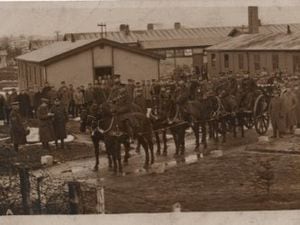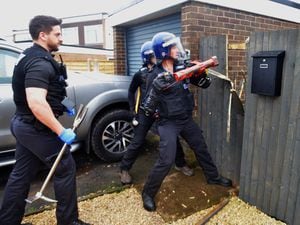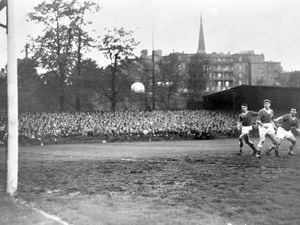How the West Midlands is at the forefront of the fight against Covid
If you don't pay attention, you will probably miss it. Just past the halls of residence on a West Midland university campus, a small red-and-white sign pokes out of the grass. This is the only visual clue that the anonymous looking building behind is not just another teaching block, but the beating heart of the nation's fight against Covid-19.
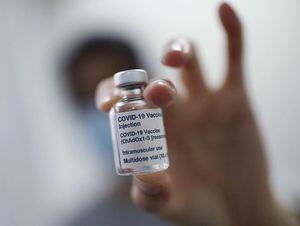
The nondescript red-brick building at Keele University, just to the north of Stafford and Market Drayton, is where the AstraZeneca vaccine is made. Part of the university's science park, the Cobra Biologics works was chosen last year as one of AstraZeneca's two main UK partners to manufacture the vaccine for domestic use.
And as the immunisation programme is now being extended to cover the under-50s, Cobra is already working on the next generation of Covid vaccines to fight off new and future variants.
Peter Coleman, chief executive of Cobra Biologics, says the company – which has close links to the university – has been at the cutting edge of medicine for 30 years. But its work on the vaccine has finally put it in the spotlight.
"I am incredibly proud of Cobra and everything we do, and what we specialise in has been given a global profile this year," he says.
"I think everyone is happy with the positive news about all the vaccines. We’re in a situation where everyone just wants to get back to normal again, and we’re also working on an additional five promising follow-up vaccines that will hopefully enable us to do so.”
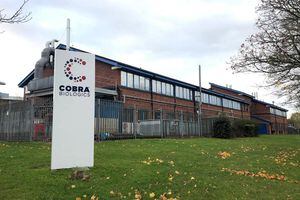
While the Cobra HQ looks like any other university building from the outside, the nature of its work means that inside, nothing is left to chance. We are not allowed to take pictures, simply because the simple act of .
"Everything needs to be swabbed down and there are too many parts in a camera for this," says marketing director Philip Ridley-Smith. "Even the corridor is a restricted area which makes filming or photographing impossible."
While the AstraZeneca vaccine – despite the inevitable teething problems – is playing a crucial role in returning our lives to normality after a year of lockdown, it is the next generation of vaccines which could really change the game.
In one of these schemes, Cobra is working with experts at Nottingham University on a 'universal' injection which could provide protection against all variants within a year.
While the existing AstraZeneca and Moderna jabs target Covid's spike proteins, which are prone to mutate as they try to find ways of beating the immunity, the new jab will also target the core of the virus itself, which are less likely to change.
Prof Lindy Durrant, of Nottingham University, says: "The chances both will mutate at the same time is unlikely. It doubles the chances you win over the virus."
This means that it cannot only fight off all current mutations of the vaccine, it will only require minimal adjustment as new variants appear, giving the vaccine greater longevity.
Professor Durrant, who is head of the university's spin-off company Scancell, says the next generation of vaccines needs to be better prepared to tackle the virus as it learns to evade the immune system.
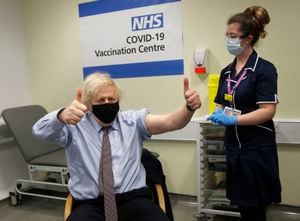
"We have the advantage of learning from the inadequacies of the first generation of vaccines to make the second generation better," she says.
Cobra is already producing batches of the Nottingham vaccine to test production and prepare for the trials.
Business development director Alexandra Brownfield says the vaccine is "grown" inside cells in a bio-reactor. An 11-gallon 'soup' of cells and nutrients can produce "a few thousand doses" over four to six weeks.
She says producing the first batch of vaccine is a thrill: "It's a really good feeling, but we are always thinking about the next batch.
"It's a high-pressure environment, so although it's a relief we're then thinking we've still got work to do with the next batch."
Dr Cliff Holloway, chief executive of Scancell, says the Cobra team at Staffordshire is crucial to the development of the vaccine.
"Cobra has the expertise needed to produce clinical-grade plasmid at scale and we look forward to working with them to advance our vaccine and demonstrate its potential effectiveness," he says.
In a separate venture, the company is also working with the Karolinska Institutet in Sweden, one of the world’s leading medical universities, on a DNA vaccine which will be delivered to the patient's muscle to generate a viral antigen to trigger a reaction from the immune system.



